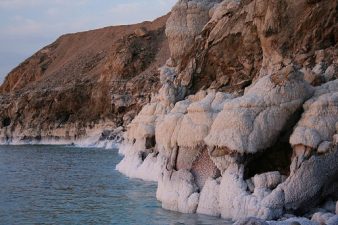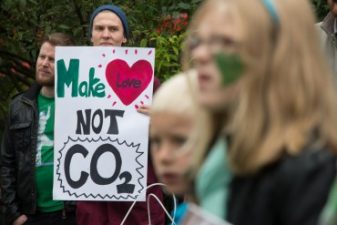Israel’s first commercial photovoltaic field is slated to be completed at Kibbutz Ketura in May.
As Susan laments in her recent post (What Holds Israeli Renewable Energy Back?), Israel has been slow in deploying solar energy at home, despite its pioneering R&D work in this field. And last week the country seemed to take another step backward, as the Finance Ministry froze incentives for large solar plants in Israel.
However, this week brought sunnier news: On Tuesday, as the 4th annual Eilot-Eilat Renewable Energy Conference convened in Israel’s southernmost city, Arava Power celebrated the start of construction on Israel’s first solar field, a 4.9 MW facility at Kibbutz Ketura. In addition, the Electricity Authority issued 30 new licenses this week for medium-sized solar power plants that together promise to generate some 66 MW of electricity.
With the 30 new licenses, the Electricity Authority has now awarded a total of 86 licenses for medium-sized solar plants, slated to produce 138 MW of electricity. This represents 46% of the 300 MW quota set for these plants. Dalkia, the energy arm of Veolia-Israel, won three of the licenses awarded this week and its total licensed capacity of 30.1 MW accounts for some 10% of the approved quota. Other companies receiving licenses this week were Sun Power, Doral, Super Solar and Paz Solar, according to TheMarker (link in Hebrew).
Near the Gaza border
The Globes business newspaper notes that about 30% of these licenses and about 50% of the projected output are for projects slated for construction in fields adjacent to the Gaza Strip. (In fact, all of the medium-sized solar plants are earmarked for outlying areas.) According to the head of the Electricity Authority, Moshe Sheetrit, the planned deployment of solar fields near the Gaza border demonstrates that entrepreneurs are not deterred by fears of rocket attacks from the Hamas-controlled Gaza Strip.
Saving electricity
And here’s some more good news: Three environment-friendly regulations were approved this week by the Knesset’s Economic Affairs Committee, the Jerusalem Post reported. (Thank you to our reader Boris for alerting us to this news item.) The regulations restrict the import and sale of 1) “electricity-guzzling” TV tuners; 2) appliances with a standby function; 3) inefficient light bulbs.
The new regulations are part of the National Infrastructure Ministry’s energy efficiency plan, which aims to cut electricity demand by 20% by 2020. (This demand is currently growing about 4% annually.)
Image via Siemens
:: TheMarker (in Hebrew)
:: Jerusalem Post
:: Globes
More on Green Prophet:
What Holds Israeli Renewable Energy Back?
Israel Freezes Incentives for Large Solar Plants
Israel Signs Landmark Solar Agreement with Arava Power




